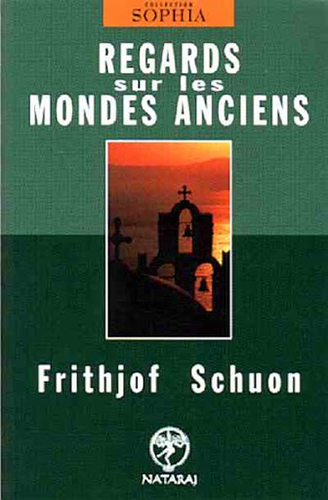
Frithjof Schuon Archive

Articles
| Titel | Zusammenfassung | Source | Article Language | Download | hf:tax:article_subject |
|---|---|---|---|---|---|
| Travel Meditations | Many questions arise simply because man lets himself be enticed into the domain where questions lie, instead of keeping firmly to the domain of certainty, If a man is confused by something, he should first of all come back to the certainty that it is not this world as such which is important, but the next world, and above all that God is Reality; and he should say to himself: in the face of this truth, which in principle is the solution to all questions, this or that question just does not arise; it is enough if he has the Answer of answers. And then God will give him a light also for what is earthly and particular. | Studies in Comparative Religion - Vol. 14, Nos. 1 & 2 (Winter-Spring, 1978) | English | comparative-religion multiple | |
| The Three Dimensions of Sufism | “FEAR” (makhâfah), “Love” (mahabbah), “Knowledge” (tarîqah): In Sufism (tasawwuf ), these are the three dimensions or stations of the way (tarîqah); “dimensions” from the point of view of their vocational separation or from the point of view of their coincidence in every spiritual vocation, and “stations” from the point of view of their succession in spiritual development. | Studies in Comparative Religion, Vol. 10 No. 1. (Winter 1976) | English | comparative-religion multiple sufism |
Featured Books
Regards sur les mondes anciens (Unbekannter Einband)
In diesem grundlegenden Werk untersucht Schuon die Tradition, die Ursprünge der Religionen, die spirituelle Dimension, die die unserer Vorfahren war.
Featured Poems
Adastra and Stella Maris: Poems by Frithjof Schuon-Weekday
Weekday: noise, fleeing flood of humanity,
Adastra and Stella Maris: Poems by Frithjof Schuon-Contentment
To be content with God — these are weighty words.
Adastra and Stella Maris: Poems by Frithjof Schuon-The Night Watchman
“Hear ye, people, let it be known:
Featured Articles
Introducing the Writings of Frithjof Schuon
This is the complete “Introduction” to the book — some other articles on this site are excerpted from this piece. It was written by Prof Seyyed Hossein Nasr for one of his most voluminous and important works, The Essential Frithjof Schuon (World Wisdom, 2005). In it, Dr Nasr covers salient features of Schuon’s work; Schuon’s place in the study of comparative religion; his central message or theme; Schuon’s thoughts on the “transcendent unity of religions”; his approach to epistemology and philosophy in general; and Schuon’s contributions to thought on art, beauty, the spiritual life, and many other topics. The “Introduction” ends with brief synopses of Schuon’s individual books. This is among the best summaries of the importance of Frithjof Schuon’s work in many areas of contemporary and traditional thought, written by one of the people best qualified for the task.
The Introduction to “Prayer Fashions Man”
Editor James S. Cutsinger provided this probing „Introduction“ to a selection of Schuon’s writings on prayer, Prayer Fashions Man. Cutsinger summarizes the various types of prayer covered by Schuon, as well as Schuon’s overall perspective.
Frithjof Schuon and Prayer
The importance of prayer was a fundamental theme in the writings of Frithjof Schuon. This article sets out to „draw attention to the subtlety, depth, and comprehensiveness that characterize Schuon’s elucidation of prayer, an elucidation which renders prayer not only an intelligible necessity for man in his quest for God, but also an irresistible summons and an inestimable gift from God to man.“ This is accomplished through a general survey of Schuon’s perspective upon prayer and then a look at „the modes and degrees of prayer, beginning with the most ordinary meaning of prayer—personal petition to God—and culminating in the most exalted form of prayer—methodic invocation of the Name of God.“
